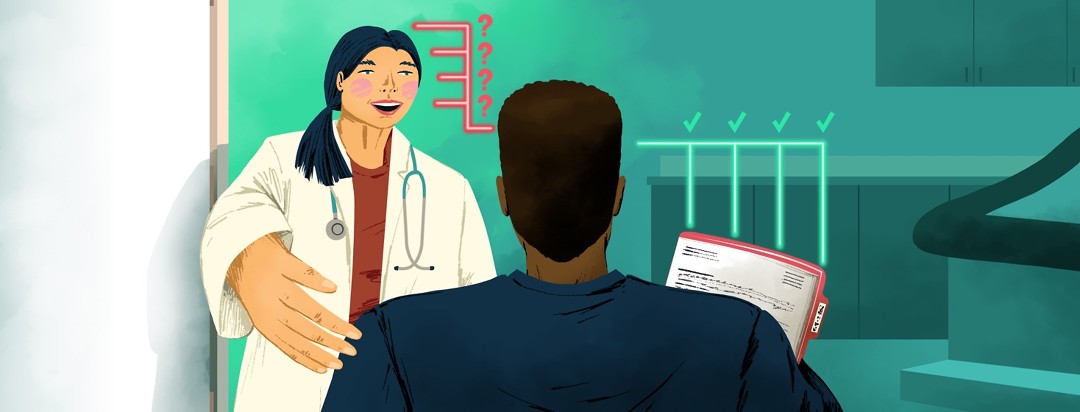How to Make the Most of Your Doctor’s Appointments
Preparing for your doctor’s appointments saves you time and helps you get the most out of your appointment. Here are some tips for doing exactly that when seeing your doctor for hepatitis C.
1. Expect paperwork
If this is your first visit to your doctor, you’ll need to fill out paperwork, medical history, list medications, past surgeries, and reasons why you’re seeing the doctor. You will also have forms to sign and insurance information to provide. If possible, obtain this paperwork prior to your visit and have them filled out for your visit.
2. Make a list
Make a list of all the over the counter and prescription medications, vitamins, and supplements you take. Keep your list with you and have the staff copy it for your file. If have any medication changes, make sure to note it on your medication list.
3. Plan it out
Make a list of your symptoms and questions for the doctor and bring the list to your appointment. You might think you’ll remember without your list, but often when you’ll there you can forget something in the conversation. If you need to, ask a family member or friend to come with you to sit in on your appointment to help you ask questions and remember what the doctor says.
4. Ask questions
Tell your doctor you have questions. A good doctor will welcome questions and help you with your concerns. This also shows your doctor you’re a proactive patient who’s prepared.
5. Get a referral
If you’re seeing your primary care doctor, you can ask to see a liver specialist like a hepatologist or gastroenterologist. These doctors specialize in the disease and treatment of liver disease and are current on all new treatments and clinical studies. Ask for a referral or recommendation.
5. Get your test results
If you have had tests done, ask for hard and electronic copies in order to be prepared for your visit with your specialist. Keep hard copies or access to your medical records and tests through the doctor’s office patient portal.
6. Login
If the doctor’s office has a patient portal, ask to sign up. If you have questions about the portal, ask the office staff or nurse how it works. In between office appointments, patient portals are often used for appointment confirmations, medical records, test results, and a good way to message the nurse with questions and concerns.
7. Get the facts
Talk to your doctor about tests you either need to have done or have done. Ask questions; what is the name of the test, why do I need the test, what is the doctor looking for from the test, what is the normal or not normal range for each test, how often will I need to repeat these tests? Make notes so you’ll remember later. This helps avoid confusion and misunderstanding. If you don’t remember, ask the nurse to confirm.
8. Track changes
If this is a follow-up visit, make notes of any medication or symptom changes and questions you have. Be sure to let the nurse and doctor know of any changes.
Get the most out of your doctor’s visits. Plan and have your information and questions ready. You’ll be glad you did.

Join the conversation